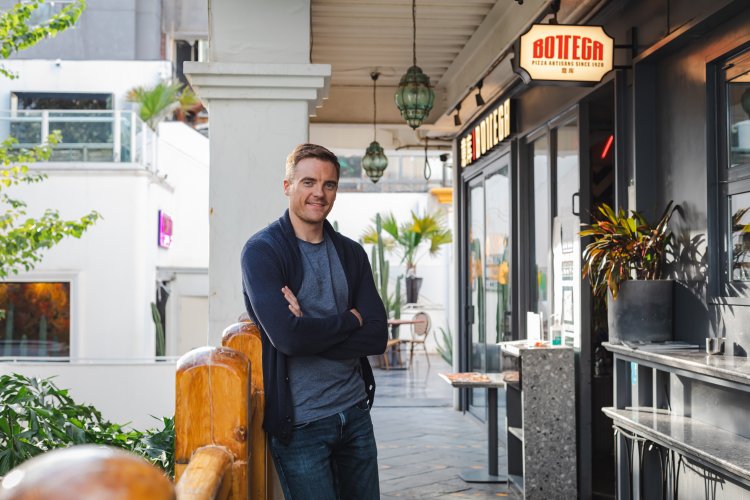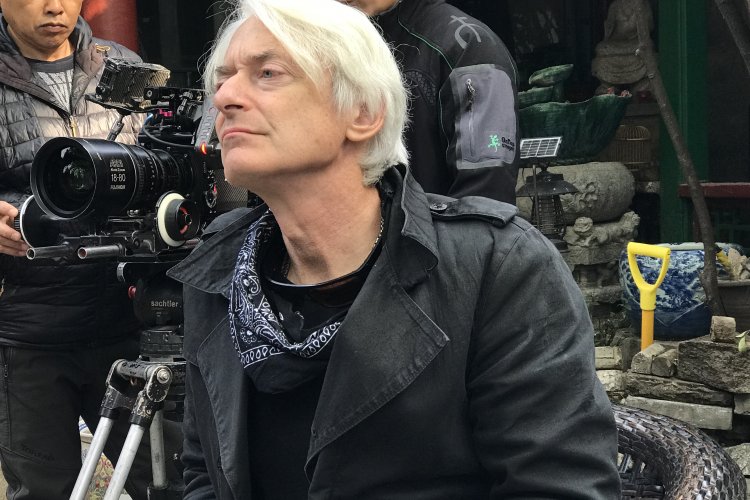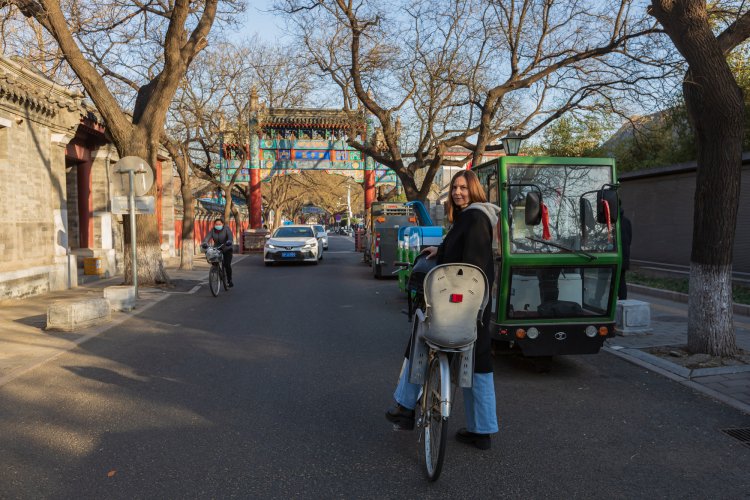20 for 20: Malek Mounther of 1001 Nights
As we continue our celebration of 20 years of The Beijinger, we’re taking a closer look at some of the expats who have been here for two decades and those who have had an oversized impact during their stay.
Malek Mounther is a wonderful, intriguing guy who has some great perspectives on life. Ever warm and respectful, during my interview with him he treated me like a brother and welcomed all my questions with an open mind and heart. Meeting him was truly a pleasure. Malek's openness to all is evident in his life and in his work, and is one of the greatest parts about visiting the restaurant that he manages and that is beloved by so many in Beijing. People come to 1001 Nights for the amazing food, but the restaurant is more than just food. Above all else, it is a place to come to be welcomed as family, and to feel the fullness of life.
As I thanked him at the end of our interview, Malek left me with some truly authentic and kind words that should serve as a great reminder to us all: “Life is short on this Earth, and the world is small. We should all do our best to help others.”

When did you come to Beijing and what brought you here?
I grew up in the Syrian Arab Republic, in Suwayda province, in the village of Al-Afaineh. After college and completing my military service, I went to Lebanon and worked there for five years. Then I thought about traveling to the People's Republic of China because of I've been in love with the country since I was little. When I was young, I remember watching kung fu movies. I also remember receiving gifts from my father – clothes, shoes, and toys, all made in China. I decided to visit China in 2004 after graduation to complete my studies in Chinese.
What were some of your first impressions of the city?
The moment I arrived I felt that I had fulfilled my dream and started a new journey. Everything was completely different from my homeland. The ancient cities, the vast airports with huge planes, and the highways with a lot of cars. Also, I remember the wonderful pulse of life, with everything elegant and decorated, even trees on the sides of the streets and roses in the gardens, even though at that time the sky was not clear because of pollution.
Did you imagine at that time that you’d still be here almost 20 years later?
No. At first, I couldn’t get used to life here, but over time I learned Chinese and continued to work hard, constantly seeking to develop my skills in business. In the beginning I was thinking of returning home to be with my parents and relatives, but over time I adapted to Chinese society and picked up some excellent habits from the Chinese people.

Can you tell us about one of your quintessential first experiences in the city?
My first memory is of the zoo, and on the second day after arriving in Beijing we went to the Great Wall of China, which captures the greatness of this country for anyone who comes to China. In the early days I felt like I was from another planet. Everyone wanted to engage with me, and everyone wanted my friendship. I had a strong personality, so that helped me make friends and get to know their culture, beliefs, and opinions. And because my place of work brought together diplomats, media workers, businessmen, intellectuals, and people both rich and poor, I got to know all types of people.
Any other special early memories?
I also remember my experience with state television. It was a half-hour interview, and we spoke in Arabic and Chinese. It was a special and dazzling experience in a new homeland for me.
What’s changed the most since you first arrived?
Many of my old inherited ideas have changed. Also, having economic success and managing to speak Chinese are a few of the biggest changes. In this country I have seen many changes in the field of technology and computer information. I witnessed a revolution in software modernization as China entered the forefront of producing countries.

Can you tell me a little bit about your work and restaurant?
I started my work at 1001 Nights in 2004. China is a great country and local production outperforms all other countries, so the restaurant's basic materials are local, though there are some spices we import from Syria to get an authentic Arab taste. The food here is of an ancient Damascene heritage with a distinctive flavor, so we are building a bridge of love and culture with this food.
What are some favorite dishes at the restaurant?
Our menu is characterized by various grilled items such as meat and fish. There are also many delicious appetizers such as chickpeas, fried kebabs, falafel with beans, and various salads such as fattoush, tabbouleh, and watercress. We also offer hot soups such as lentil soup, as well as Syrian kofta. And don’t forget the authentic Arabic sweets, such as baklava, konafa, basboosa, and mohallabia.
In addition to your work at the restaurant, what else are you involved with in Beijing?
My hobbies include swimming, horseback riding, singing, speaking to people respectfully, and visiting archaeological sites and ancient areas to link the past to the present and future. Also, I enjoy cultural lectures, economic forums, and concerts.

What are your thoughts about life in Beijing?
Beijing is a safe city with psychological stability. I believe this plays a part in the success of a person and enhances the enthusiasm for progress.
Do you have family in Beijing?
Yes, my beautiful family. My wife and three children, Ameera, Malak, Ariealla.

Where are some of your favorite places to hang out in Beijing?
There are many beautiful places in Beijing – Tiananmen Square, the Great Wall, the Emperor's Palace, and the Temple of Heaven, places the whole world knows and respects. But the city is also full of thousands of restaurants, including traditional Chinese restaurants, restaurants serving Uygur food, and everything in between. Also, there are many gardens and attractions in every square in Beijing. Some of my favorites are: Beihai Park, Tiantan Park, and Zheng Long Khu Park.
What’s one piece of advice you have for relatively recent arrivals (within the last year)?
Abide by China's domestic laws.
READ: 20 for 20: Restaurateur & Life Coach Eva Biörck
Images courtesy of Malek Mounther







